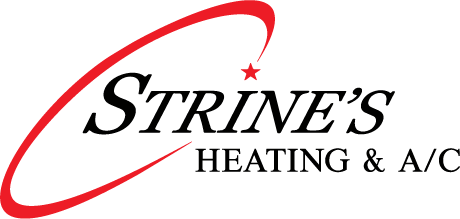Purchasing your first home is exciting. You’re probably juggling numerous details about making the right choice. We believe that understanding your future HVAC system is vital. The property’s HVAC system represents a significant investment and potential source of long-term costs, so being thorough helps all first-time homebuyers.
In the following guide, we’ll share seven tips for learning everything you can about a home’s heating and cooling system. And if you want a more in-depth opinion from the pros, feel free to call Strine's. Our experienced team can weigh in on your options with industry insights that are second to none.
1. Which Kind of HVAC System Does the Home Use?
Start by identifying what kind of HVAC system the home features. Furnaces tend to last longer compared to air conditioners, and some of the latest types of HVAC systems like heat pumps feature average life spans that are impressively long. Knowing the make and specific model gives you a much better sense of how much maintenance it will require.
2. How Old Is the Current HVAC System?
It also helps to learn how old the HVAC system is when you’re considering a new home. For the most part, HVAC systems last about 10-12 years. Learning its approximate installation date helps you anticipate future maintenance needs or considerations if it might break down. Older systems may be more vulnerable to problems, so planning ahead of time for a replacement unit might be needed faster than expected.
3. Does the System Have a Warranty?
Check if the HVAC system is covered by a warranty. If it is, you’ll appreciate how it can lower maintenance expenses. HVAC warranties should take care of parts and labor, but it’s important to note that details will vary. Review any terms that seem confusing to ensure you understand your coverage and the likelihood of out-of-pocket costs.
4. Has the System Ever Been Professionally Serviced or Maintained?
Don’t forget to check the maintenance history of the HVAC system, if that information is available. This kind of information can reveal if there have been regular problems or how often a tune-up was scheduled. Ask about records for key tasks such as changing the air filter, which can indicate it received regularly scheduled tune-ups.
5. What Are the Energy Efficiency Ratings?
Finding a home that features an HVAC system with great energy efficiency isn’t just smart; it leads to smaller utility bills and less of an impact on the environment. Check out the seasonal energy efficiency ratio (SEER) ratings for air conditioning as well as the annual fuel utilization efficiency (AFUE) for furnaces. Higher SEER ratings mean better cooling across the entire season, while high AFUE ratings indicate that the fuel is more effectively burned for useable heat.
6. Can You Spot Trouble During Your Inspection?
Even without experience in HVAC systems, it’s still a good idea to check out the HVAC system on your own. Look for potential issues that weren’t mentioned by the seller or real estate agent. This might consist of odd sounds, spots with uneven heating or cooling and attempts at concealing any serious damage.
7. Have You Asked Your Local HVAC Professional?
If you’re not quite sure about the condition of the HVAC system, it’s never a bad idea to get input from certified HVAC technicians. They are skilled at identifying things you might miss, including refrigerant leaks, damage to the wiring or inefficient ductwork.
A Consultation with Strine's Helps Take the Stress Out of Your Home-Buying Journey
Choosing your first home should be thrilling, and Strine's will do everything possible to ensure yours is too. Get in touch with us at 717-864-4554. We can discuss how our HVAC services ease your mind, giving you what you need to step into your new home with confidence.
